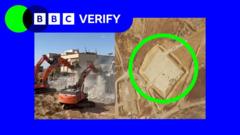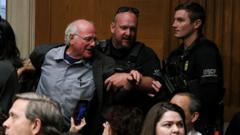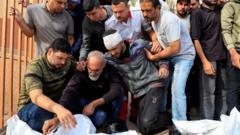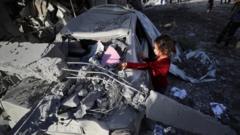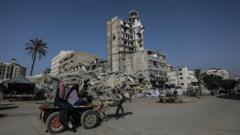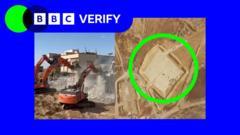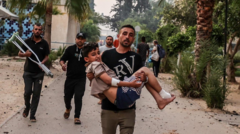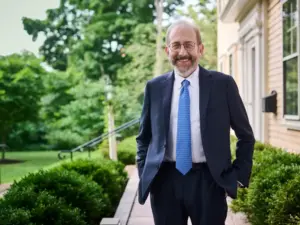The long-standing European institutions aimed at fostering peace and unity are currently under strain due to increased antisemitism and backlash against immigration, intensified by the Gaza conflict. Pro-Palestinian demonstrations at cultural events, notably the Eurovision Contest, highlight these divisions.
Europe Faces Growing Divisions Amid Gaza War Tensions

Europe Faces Growing Divisions Amid Gaza War Tensions
Rising antisemitism and anti-immigrant sentiments threaten social cohesion in Europe, exacerbated by the ongoing conflict in Gaza.
The crisis in Gaza is increasingly testing the fabric of European society, impacting cultural and social institutions designed to foster unity. Originally established to transcend national conflicts and promote harmony across the continent, these organizations face mounting challenges from rising antisemitism, anti-immigrant sentiments, and nationalist extremism.
Recent events have underscored the extent of these divisions. The long-lasting conflict in Gaza has heightened feelings of outrage, particularly among younger Muslim communities. Many have expressed their discontent with the Israeli military actions that have led to significant civilian casualties in Gaza, where a large number of deceased are reportedly women and children.
A noteworthy incident occurred during a soccer match in Amsterdam where tensions escalated into violence. Investigations are currently underway regarding antisemitic assaults targeting Israeli fans, alongside provocative conduct from both groups involved in the match. This event is indicative of broader societal rifts related to the ongoing war in Gaza, exemplifying the challenges faced by European governments as they navigate rising conflicts.
Meanwhile, the Eurovision Song Contest, traditionally a celebration of cultural diversity and harmony, was marred by protests against Eden Golan, an Israeli contestant. Held in Malmo, Sweden—a city with a substantial Muslim population—the contest witnessed significant opposition from pro-Palestinian advocates. Golan's original song lyrics, which referenced the tragic loss of 1,200 Israelis during the Hamas-led attacks, were deemed too political and subsequently altered, resulting in mixed reactions from the audience.
Rather than serving as a platform for collective artistic expression, this year's event turned into a focal point for ongoing tensions surrounding the Gaza conflict. The performance led to both booing from segments of the audience and an outpouring of online support, further illustrating the deepening divides within European society.



